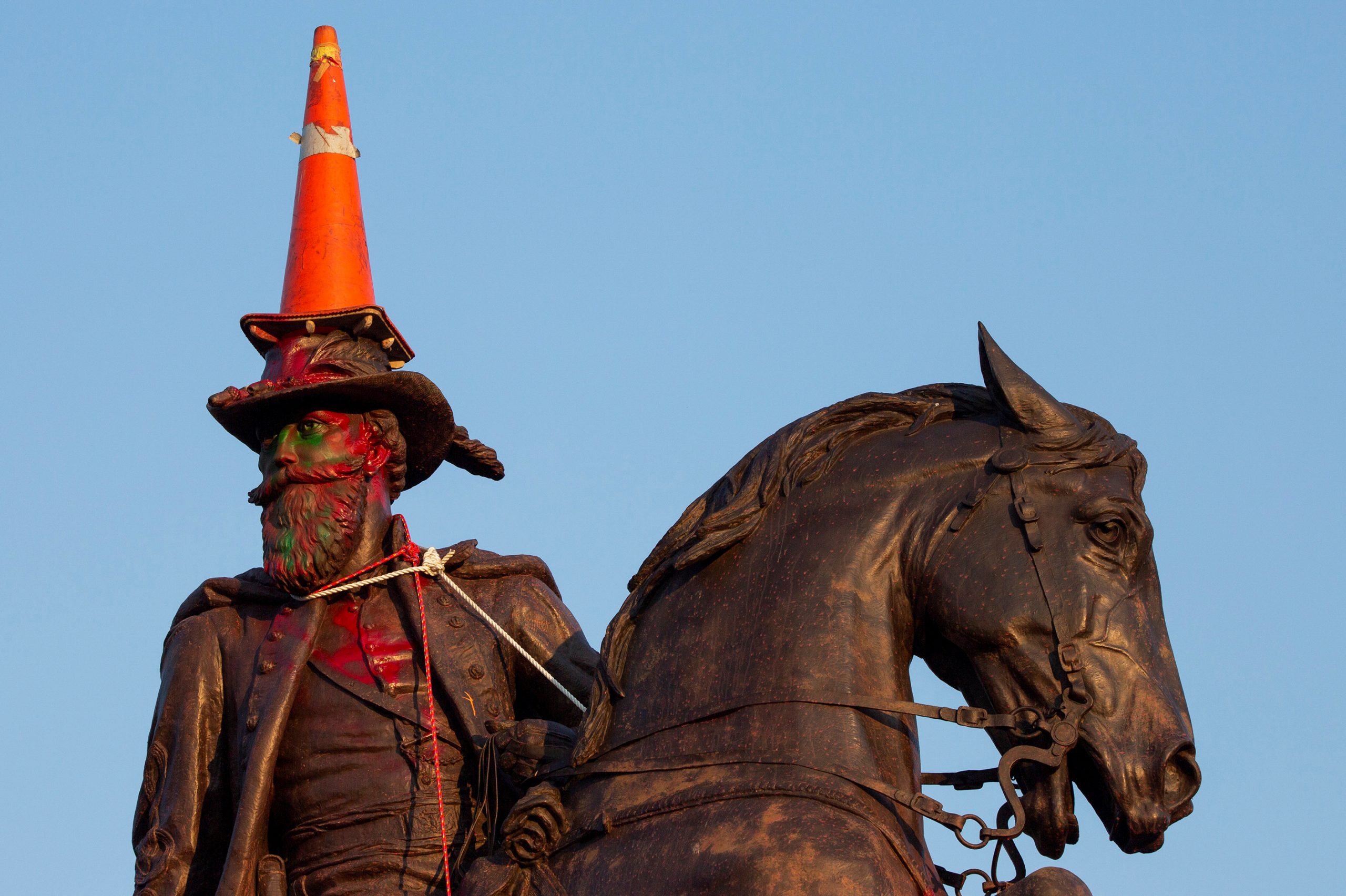A couple of days ago at work, a patron came into the library (no mask) and asked me this question: “If you could take a pill to erase your memory, would you take it?”
I said, “I’m sorry, sir, I don’t understand the question.”
He asked again, “If you could take a pill that erased your memory, would you take it? Your memory is what makes you who you are. You would forget who you are and how to function.”
“I don’t know how to answer your question,” I said, “can you give me some context?”
“Well, that’s what they’re to do by tearing down our statues!” he exclaimed. “They’re trying to erase our memory and who we are! Don’t you think?”
Ignoring the fact that we’re in our Ohio, and so it’s not like Confederate statues would be ours to begin with, I replied, “This is an inappropriate conversation. But can I help you with anything else?”
“Answer the question,” he insisted, “do you agree they are erasing our history?”
I repeated myself and he talked over me until I finally demanded he leave.
I want to say, here on this blog, what I wish I could have said to him while at work; no, obviously I don’t agree, and you’ve got a lot of growing up to do if you assumed I would agree with such thinking just because I’m white.
Statues and monuments, worldwide, are erected for a multitude of reasons. Among those reasons, one, ONE, may be to educate. Generally any educational opportunities a monument provides doesn’t come from the monument itself but rather from plaques, tours, and other resources orbiting the monument. Due to this, a monument doesn’t have to be in a specific location to serve this purpose, meaning a monument in a museum is just educational as a monument in a public park or in front of state house.
The far more practical purposes for monuments include commemorating, celebrating, and honoring. And that’s the problem. The argument that Confederate monuments in publicly-supported spaces paid for by the public somehow serve as historical records doesn’t hold up with the slightest bit of scrutiny. No, these monuments were erected to honor those who betrayed this country, enslaved and raped some people, and murdered others. These are not things to honor or celebrate. Any commemorations should be for the victims and for the country overcoming such atrocities. These people were not American heroes, they fought to not be Americans anymore. In America, we are so quick to condemn and portray crimes against humanity committed by other countries, yet we romanticize our own. It must stop.
This is what I wanted to say to you, sir. I had not been on the clock, I would have. Perhaps it was even wrong of me to not say this to you on the clock, since perhaps defending human decency should be more important than my job. I want to feel sorry for you, I really do, since you have clearly been misinformed. I want to feel sorry for you, because you stood in a library, a place of knowledge, and spewed twisted “history,” when I could have shown you true history in books just a few shelves down. I want to feel sorry for you, but, to be honest, I’m just disgusted.

 About Me
About Me